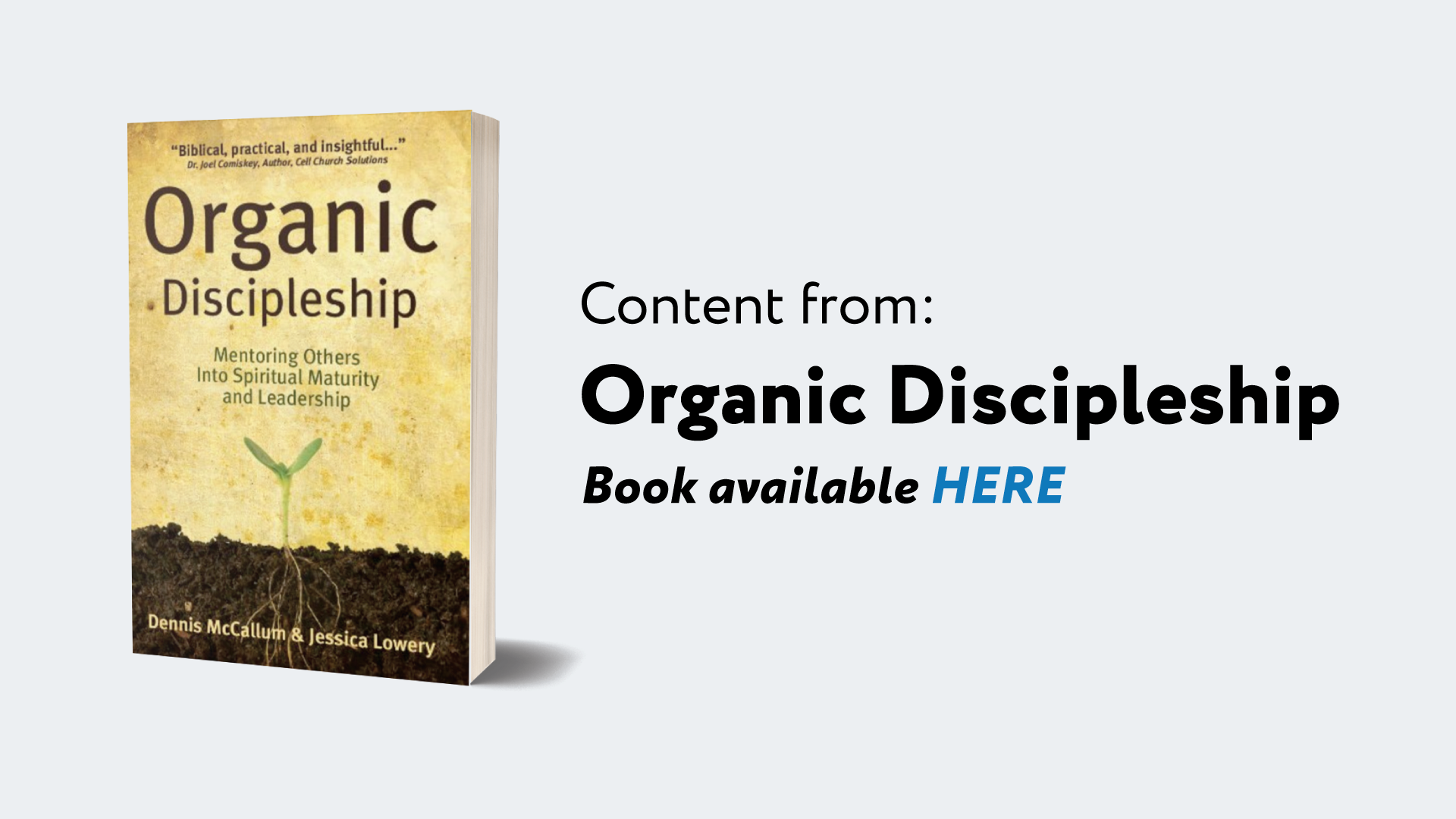Organic Discipleship - Appendix 5: Assurance of Salvation
Jessica Lowery

Introduction
This paper is designed to be studied with a new believer. A disciple maker may give this paper to a new believer for her to read on her own, or go over it together. The language is simple and designed for anyone to understand, whether they have a church background or not. If you choose to read this together with your disciple, pause to look up the verses mentioned and discussing how they apply.
What Is Salvation?
- We are naturally rebellious toward God, and separated from him by our sins. (Romans 3:10-13; 23; 5:8; 10;12; James 2:10; Ephesians 2:1)
- God wants the separation to end; he wants to bring us back together with him and rescue us. (2 Peter 3:9; John 3:16; 2 Corinthians 5:20)
- He initiates with us throughout our lives “drawing all men to himself” (John 12:32).
- God won't overpower us and make us right with him against our will. Responding to his initiation and accepting his offer of forgiveness is the most spiritually significant decision we make in life. (Matthew 23:37; John 1:12; Revelations 3:20)
- It's important to prayerfully confess that we have been sinful, that we want to be reconciled to God, and that we believe God can accomplish this reconciliation. (Romans 10:9-13; 1 John 1:8,9)
- Once we do this, we can be assured that we are reconciled to God forever. Nothing can break this relationship. (Romans 8:38,39; John 10:28,29)
- We can also be sure that every sin we ever commit (past, present, and future) is forgiven because of the price Jesus paid on the cross. (Hebrews 10:12,14; Colossians 1:21,22; 2 Corinthians 5:21)
Our New Identity
- We now have a new spiritual identity because of God's gift; we are no longer seen as “sinners.” We are God's children now. Although we may not feel like it, a spiritual change has occurred, and although we may continue to sin, sin is no longer our master – God has paid the ransom price to free us from our life of slavery. Sin no longer characterizes who we are. (Romans 6:6; 11, 14, 18; 2 Corinthians 5:21)
- Because we are accepted by God, our guilt feelings should lose their power over us. We can always go to God without worrying what he thinks about our behavior. (Ephesians 1:,7; Colossians 2:13-14; 1 Corinthians 1:9; Hebrews 10; 2 Corinthians 5:16-17)
- We can look forward to eternal life with God. We are going to a place without the pain and hate that fills this world. We no longer have to fear death. We no longer have to worry about whether or not we are “getting enough” here, we will have plenty in a matter of time – this will free us up to think about the needs of other people. (Ephesians 1:11,14, 1 Corinthians 6:14, 1 Corinthians 15:12-26; 50-55)
- We are adopted children of God. We have belonging. We have a family with God and his other children. We have a God who cares for us, who wants to give us good things, and who understands us. (Ephesians 1:5-6, Romans 8:15-17, Galatians 4:4-7, Rom. 12:5, 1 Corinthians 12:18)
- We have been delivered from Satan's authority. If we are afraid because of strange experiences we may have had, we can take security in the fact that we belong to God now, and God is stronger than Satan (Ephesians 1:20-21, 2:1-7, Colossians 1:13; 2:10-15; Hebrews 2:14; Luke 10:18,19)
- We have a unique role in God's purpose. We can take significance from the fact that God wants to use us to help others. He put us where we are for a reason. (Ephesians 2:10, 1 Corinthians 12:18, 2 Corinthians 3:9-15, 2 Corinthians 4:1, 5:17-20)